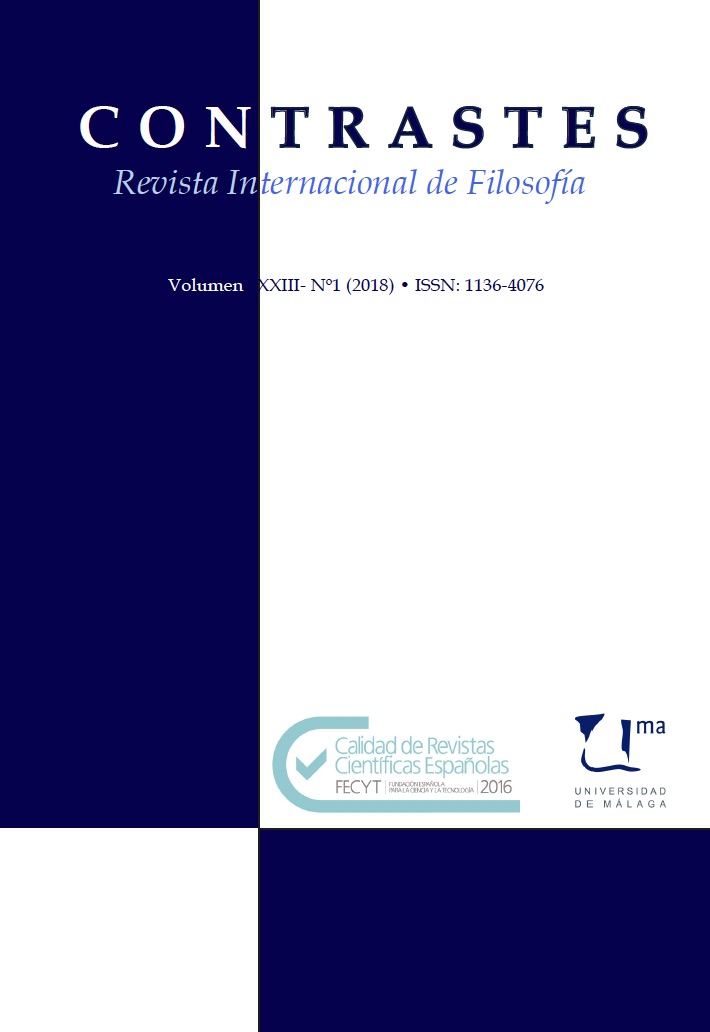The approach of human pathos in Marx, Freud and Nietzsche
DOI:
https://doi.org/10.24310/Contrastescontrastes.v23i1.5464Keywords:
Practical Sensitivity, Affectivity, Will to power, AffectsAbstract
The following work aims to develop the form through which Marx, Freud and Nietzsche have thought the causes of human pathos —understood it in its double meaning of suffering and passion— from a materialistic approach to the notions of sensitivity and affectivity. Consequently, emphasis will be placed on the concept of «practical sensibility», adopted by the young Marx of the Economic and Philosophical Manuscripts of 1844, and on the «will to power» present in the rough draft of «the theory of affections» in the Posthumous Fragments of the last Nietzsche. An encounter that, despite the biographical, theoretical and historical distances, it is possible to draw from the concept of sensitivity and that includes Freud as an intermediary, because from his psychoanalytic perspective he was also concerned in understanding the indomitable nature of our psychic constitution.
Downloads
Metrics
Publication Facts
Reviewer profiles N/A
Author statements
Indexed in
-
—
- Academic society
- N/A
- Publisher
- Universidad de Málaga
Downloads
Published
How to Cite
Issue
Section
License
This journal provides immediate free access to its content under the principle of making research freely available to the public. All content published in Contrastes. Revista Internacional de Filosofía, are subject to the Creative Commons Attribution-NonCommercial-ShareAlike 4.0 license whose full text can be found at <http://creativecommons.org/licenses/by-nc-sa/4.0>
It is the responsibility of the authors to obtain the necessary permissions of the images that are subject to copyright.
Authors whose contributions are accepted for publication in this journal will retain the non-exclusive right to use their contributions for academic, research and educational purposes, including self-archiving or repository in open access repositories of any kind.
The electronic edition of this magazine is edited by the Editorial Service of the University of Malaga (Uma Editorial), being necessary to cite the origin in any partial or total reproduction.










5.png)
